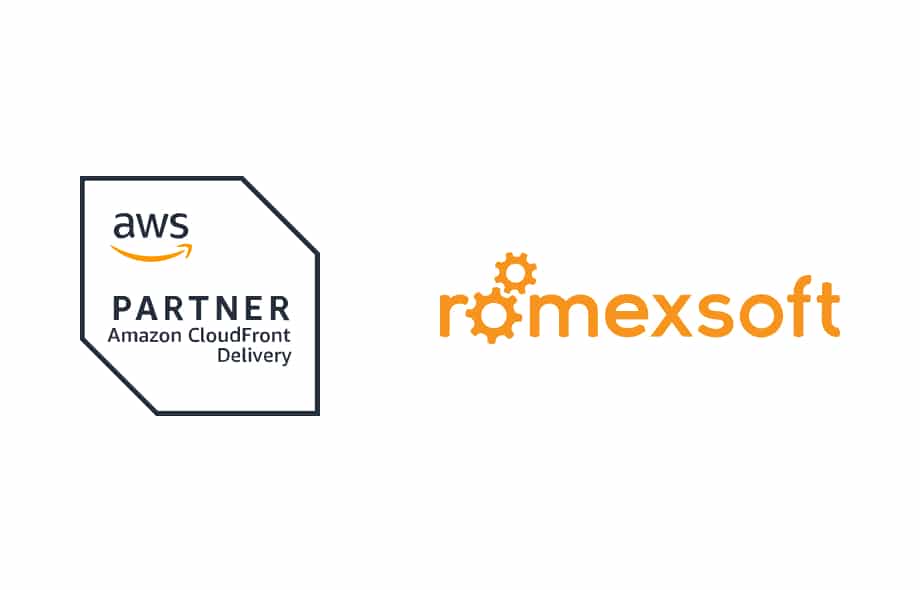Romexsoft Blog
Stay updated with our expert blog, where we share the latest insights on software development, emerging tech trends, industry tendencies, and best practices from our personal experience.
We also provide deep dives into AWS services, offering practical cases, useful tips, and well-thought-out strategies to help you navigate the Amazon cloud.

Given the complexity of balancing business objectives with technological demands, we have created this guide to help you choose and implement the optimal multi tenant architecture for SaaS applications using Java, Spring Boot, and AWS.
By the end of this article, you will understand how to select the optimal approach for your business requirements and how Romexsoft’s expertise can help you achieve your SaaS goals.
In particular, we will cover:
- What multi-tenancy in cloud computing is
- What the benefits and disadvantages of each multi tenant architecture are
- How to implement different types of architectures using Java, Spring Boot, and AWS
- How businesses can understand which type is the most suitable for their needs

Keep pace with the dynamic field of QA with these forward-looking insights:
- Integrate AI and predictive analytics for proactive testing strategies.
- Embrace both shift-left and shift-right approaches to cover the entire development lifecycle.
- Leverage Test Environment as a Service (TEaaS) for agile, on-demand testing infrastructures.
- Understand that advanced automation techniques are key to maintaining a competitive edge and enhancing software quality.

Many companies revere distributed systems as a one-size-fits-all approach, which optimally solves any software issue, but does it?
This article explores architecture options from various monolith types and transition options to micro frontends in action: their characteristics, merits and demerits, indications, and nuances between micro frontends in monorepos and multirepos. Be sure to make informed decisions in your frontend architecture journey after perusing this go-to article.
Should any of these questions bother you, keep on reading:
- What is micro frontend architecture?
- How to find out if I need micro frontends?
- What is the difference between monoliths, integrated apps and micro frontends?
- How are present-day monoliths similar to and different from distributed systems?
- What are the risks of micro frontend architecture?

We are thrilled to announce that Romexsoft has officially become an Amazon CloudFront Service Delivery partner. This designation reflects our dedication to providing top-notch networking and content delivery services (CDN).
The achievement is a testament to our technical prowess, commitment to AWS best practices, and, most importantly, the proven success we’ve already delivered to our customers.
Amazon CloudFront is a content delivery network (CDN) service that securely delivers data, videos, applications, and APIs to customers globally with low latency and high transfer speeds, all within a developer-friendly environment.

Embarking on a successful project journey means navigating through the intricacies of project management, a dynamic process marked by distinct stages, each demanding unique steps and tools. This article is an all-encompassing exploration of the project manager’s pivotal role throughout the project life cycle. Join us as we uncover tips and insights, providing a roadmap for the complex realm of project management that can be full of pitfalls. Browse through this article to find out:
- what is project management life cycle
- what tools and documents will come in handy in managing a project
- what duties a project manager is supposed to adopt
- what challenges occur in the project management flow
- how to prevent and tackle the project management issues.

One data breach costs $3.7 million in lost revenues. Learn about the essential EHR features to patch all the vulnerabilities and keep patient data safe.

Granted that modern web or mobile applications are an indispensable part of delivering customer value, it is only justifiable for businesses to invest in modern architecture construction to pave the way to customer satisfaction and competitive standing.
Unfortunately, the struggle organizations face in balancing technology management and innovation holds many businesses back from reaping the results of their application modernization. In order to help you address this frequent issue permeating the process of modern application development, Romexsoft has created this article which reveals:
- What the most common advantages of modern architecture are
- What steps cloud application development entails
- How AWS application development services support modern infrastructures
- Why collaborate with certified vendors in AWS consulting and application development

Achieving application observability: the ability to gain insight into an app’s inner operation, is a widespread business challenge aggravated by a common problem: effective instrumentation. While observability is increasingly important, the way to achieving it can be obstructed by the intricacies of instrumenting effectively.
The article will lead you to Amazon’s best practices for overcoming this challenge, enabling organizations to gather and analyze their app’s information in order to gain insights as well as take appropriate actions to tackle issues and ensure optimal app performance. Upon reading, you will be able to apply the following knowledge to your app’s merit:
- why instrumentation matters for observability
- how to handle cardinality within visibility
- what tools and services for instrumentation
- what best practices Amazon promotes for achieving visibility

Like many organizations, yours may be facing challenges when seeking secure, scalable, and high-performing search and analytics solutions. Indeed, the pursuit of making the most of the available data is often hindered by operational complexities. Be it data security or scalability issues, this is where Amazon OpenSearch Service comes into play.
Should you be new to Amazon OpenSearch Service or quite a confident user already, this all-encompassing article will guide you in the intricacies of data-driven approach and analytics. The article will give you a thorough overview on:
- What OpenSearch Service is and how it relates to OpenSearch
- How Amazon OpenSearch operates and what functions covers
- What the typical use cases for OpenSearch Service are
- What benefits OpenSearch Service provides and at what cost




